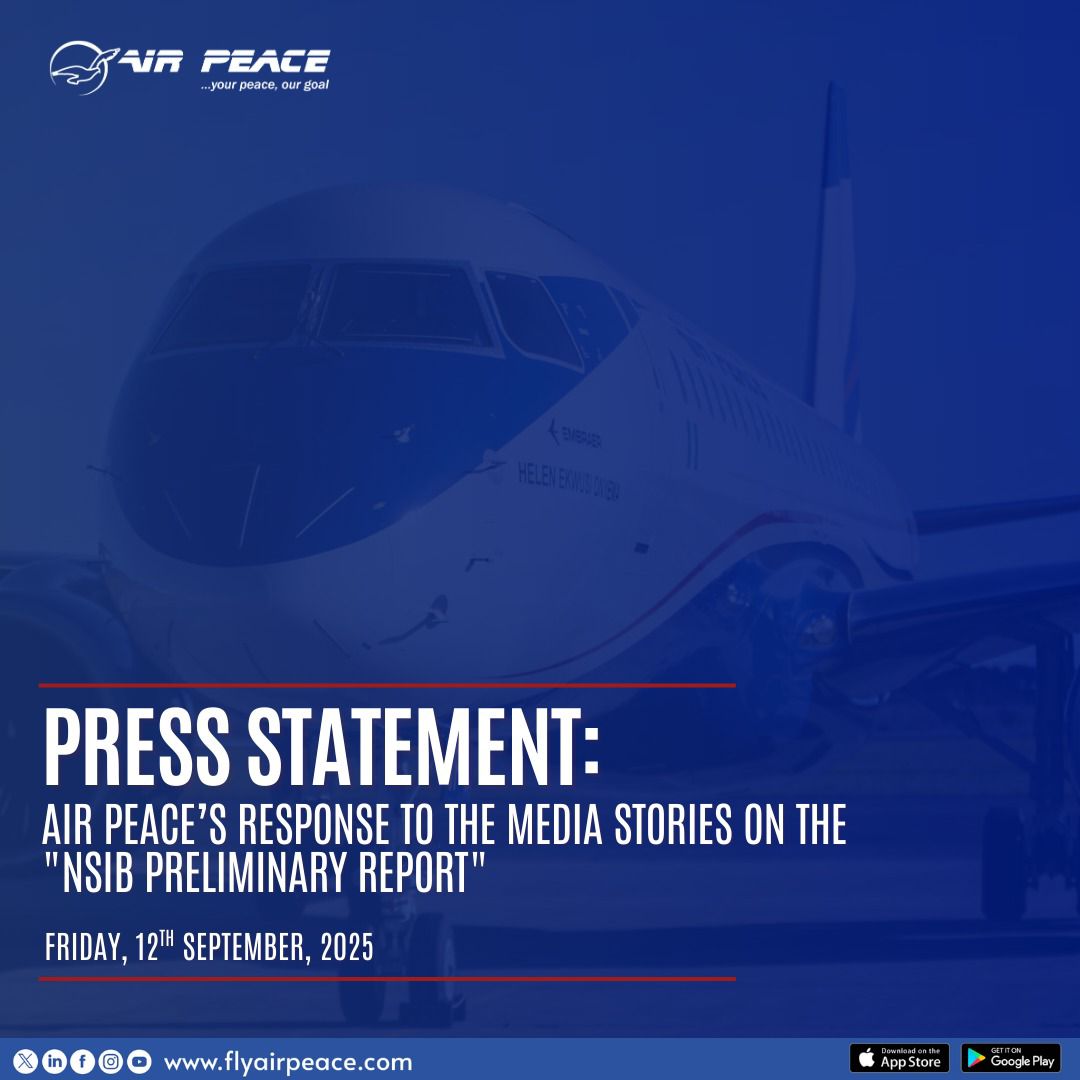LAGOS, Nigeria – Nigerian airline Air Peace has strongly denied media reports alleging that one of its pilots tested positive for cannabis following an incident involving its aircraft at Port Harcourt International Airport on July 13, 2025.
In a statement released Friday, the airline said it has not received any official communication from the Nigerian Safety Investigation Bureau (NSIB) regarding a preliminary report that has been cited by multiple media outlets. The reports claim that the captain on duty during the incident tested positive to alcohol and cannabis in a post-incident breathalyser test.
“Over a month after the incident and after the crew was tested, we have not received any official findings from the NSIB,” the airline said. “The test was conducted in less than an hour after the incident, yet no results have been communicated to us.”
The July 13 incident, details of which remain unclear, reportedly involved a procedural error during landing. Air Peace said it took immediate internal action by grounding the captain for what it described as a failure to follow Crew Resource Management (CRM) principles and for disregarding the co-pilot’s advice to execute a go-around. The airline was firm in stating that the decision to remove the captain from duty was not related to any confirmed positive alcohol test.
“The captain was relieved from further flight duties for failing to adhere to CRM procedures, not due to any positive breathalyser test,” the airline emphasized.
In contrast, the First Officer, who called for the go-around, has been cleared by the Nigerian Civil Aviation Authority (NCAA) and reinstated to active flying duty. Air Peace said his reinstatement by the NCAA demonstrates that he was not involved in any misconduct, including drug or alcohol use.
“If the First Officer had tested positive, the NCAA would not have authorized his return to duty,” the airline stated.
Air Peace reiterated its commitment to a strict safety and substance abuse policy, noting that it conducts frequent alcohol and drug tests that exceed regulatory requirements. The airline said its internal policy is more stringent than the standard “eight hours bottle-to-throttle” rule applied across the industry.
“We have a zero-tolerance policy. Drug use is a no-no,” the statement read.
While denying knowledge of any confirmed positive test result, the airline said that if the NSIB eventually confirms such findings, it will move to increase the frequency of testing and intensify internal compliance checks.
“The importance of enhanced Crew Resource Management training cannot be overemphasized,” the company said. “We will strengthen our fitness-for-duty checks and internal monitoring.”
Air Peace concluded by affirming its dedication to maintaining its safety record and reassured the public that safety remains its highest priority.
“Air Peace has consistently implemented global best practices in all aspects of its operations. Safety will never be compromised.”
As of press time, the NSIB has not issued a public response or released the full preliminary report.
